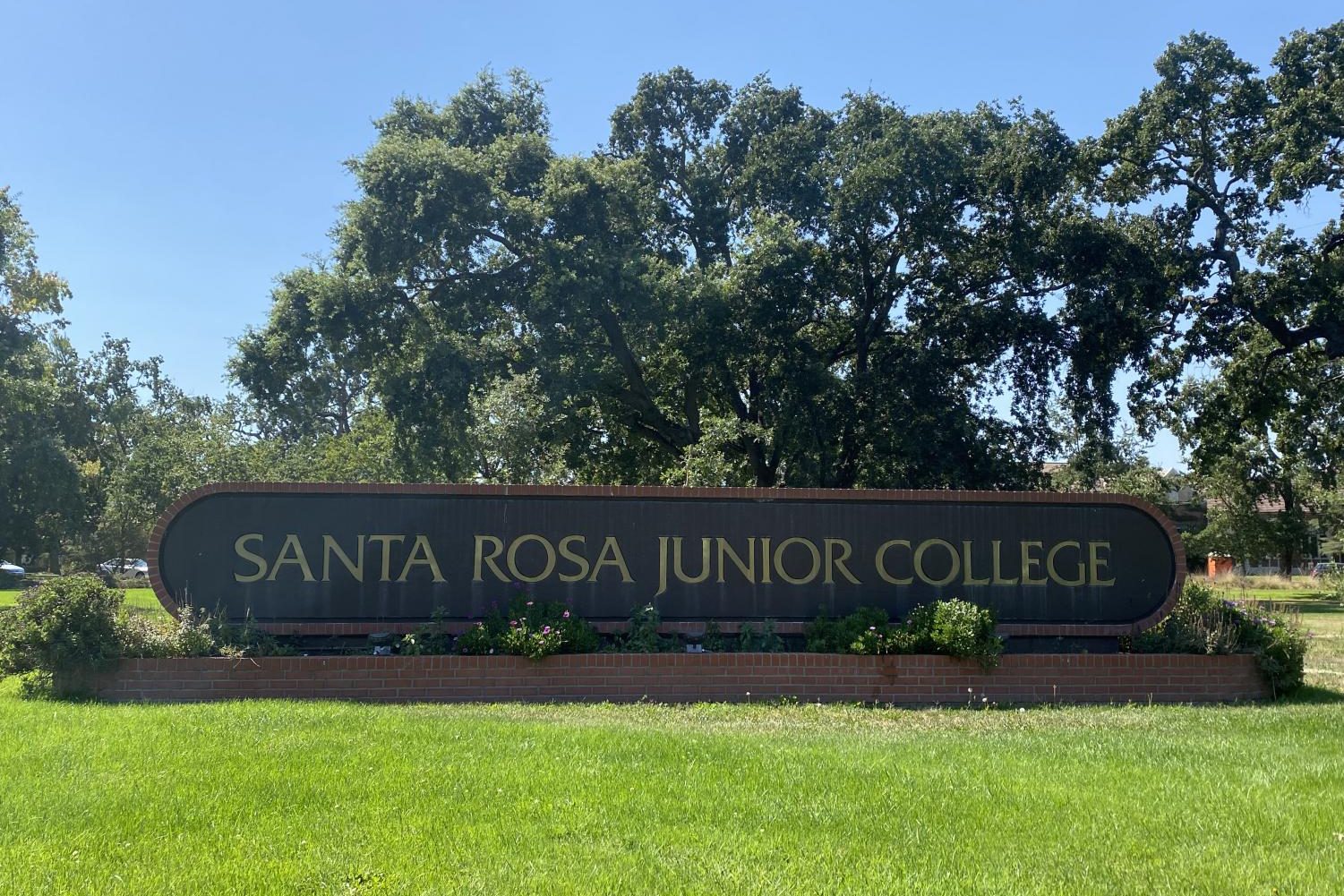Infuriated by Santa Rosa Junior College District’s response to allegations of discrimination and misconduct about Dean Ben Goldstein, faculty members drew up a statement demanding changes. Fifteen faculty members, including three who serve on the academic senate, signed the statement circulated to all faculty and staff, the presidential cabinet and members of the Board of Trustees on June 18 in a long email thread.
The statement grew out of the expanding controversy in which SRJC faculty continued to voice their anger about discrimination and harassment and the district’s handling of it in an all-faculty email thread that dates back to June 4.
First reported on June 12 in The Oak Leaf, the email thread began in response to a May 29 Press Democrat article revealing allegations of misconduct and sexual discrimination by multiple complainants about Goldstein.
Initiated by computer studies instructor Mike Starkey on June 4, faculty members chimed in to the growing email thread addressed to President Angélica Garcia, all members of the presidential cabinet and all college faculty and staff members.
President Garcia responded to the faculty email thread to acknowledge that, “Every person at SRJC deserves a learning and working environment that is free from harassment.” She also summarized the district’s policy and procedures for reporting sexual harassment and reminded the community that it was not appropriate to discuss a confidential personnel issue over email.
As the discussion continued over email, additional district representatives responded with multiple requests for faculty to cease discussion of personnel matters over email.
But faculty ignored the administration’s procedural requests and continued to discuss the allegations and demand change.
On June 11, President Garcia made a more public response in her President’s Response at the June Board of Trustees Meeting, which she later circulated to faculty members. Garcia acknowledged the ongoing conversations following the Press Democrat article. She restated the district policies regarding discrimination and harassment and reiterated that all parties received due process and the district had no additional information to provide on this matter.
Garcia then turned to focus on how the community can move forward. “We will need to commit to an intentional cultural shift in the norms of our workplace for equity and justice to occur,” she said. “I recognize cultural change requires significant effort and time to examine and affect deeply ingrained norms, values, and behaviors that have developed over time and reinforced by the status quo. Changing these established patterns requires all our collective energies, so that we may truly embody SRJC’s vision, mission, and values.”
She said the work must reach every department across all campuses in the district. “This is in response to a systemic culture rooted in oppression that undermines our core values and hinders our ability to grow and innovate. It is our collective responsibility to challenge and change these ingrained systems and practices in thoughtful and collaborative ways, beginning with our own personal reflection on the role we may have played to maintain the status quo. From our individual departments to our sites, we need to ask ourselves, ‘how have I/we contributed to maintaining divisive and oppressive actions, practices, policies, and procedures?’”
Faculty members reacted with more anger.
Starkey rewrote Garcia’s email response with bold-faced additions where he had found omissions: “This sentence from your report at the Board Meeting was missing a word (see it added here in BOLD) it needs to read: “I want to acknowledge there are conversations happening within SRJC and externally regarding how we are NOT creating a safe, healthy, and supportive learning and working environment for students and employees.”
The district’s refusal to provide more information drew his particular ire. Starkey offered this rewrite to Garcia’s: “There is much more additional information to provide in this matter.”
And on June 14 Angelica Maria Barraza Tran, English department faculty, added her fury to the email chain in all-caps: “MANY WOMEN over MANY YEARS submitted complaints against Goldstein regarding his inappropriate behavior in the workplace.” That SRJC did not fire Goldstein “means that leadership thinks ALL OF THE WOMEN’s complaints are either untrue or that they do not rise to the level of a fire-able offense (read: either the women are lying or being overly sensitive. I can’t decide which one is worse),” she wrote. Finally, she asked, “And WHAT ABOUT OUR STUDENTS?”
Tran’s email generated support from additional faculty, as well as thanks for naming the “elephant in the room,” from Joan Barrie, administrative assistant in adult education.
Subsequently, on June 17 President Garcia shared initiatives to increase dialogue and collaboration about the envisioned cultural shift. To foster open dialogue and community engagement, the district will collaborate with Rooted in Love to host more than 20 sessions — both in person at each site and virtually — beginning this summer and continuing through October. Rooted in Love is the consulting firm supporting the district’s Cultivating an Ecosystem of Belonging program.
The IDEAA (Inclusion, Diversity, Equity, Anti-Racism, and Accessibility) Taskforce will incorporate feedback from the Rooted in Love sessions as well as responses to the Campus Climate Assessment Survey results to develop recommendations to cultivate a community of belonging, safe spaces and collaboration at SRJC.
Additional initiatives include immediate actions to address systemic change, including board revisions and reviews; clear reporting mechanisms; open forums during the search for a new vice president of human resources; new employee trainings to address Title 7 of the Civil Rights Act of 1964 on employment discrimination and mandatory trainings on supervisory practices, IDEAA, and anti-discrimination for managers.
Despite the president’s June 12 message, the institutional and workplace culture initiatives and the administration’s repeated requests to cease email discussion of personnel issues, the debate continued.
On June 18 Starkey circulated the statement, already signed by 15 faculty members including himself.
While acknowledging that the complaint process preceded the hiring of President Garcia, the statementers requested that she partner with faculty demanding changes to the way the district handled the complaint process.
The statement (included below) makes three demands of the district: that it place Goldstein on administrative leave; that it reopen the investigation of complaints against him with as much transparency as allowed and with a district-chosen third-party investigator; and that the district form an independent office for human resources separate from any influence from the Board of Trustees or the president’s cabinet.
In 2023, SRJC hired an outside party, School and College Legal Services of California, to conduct the investigation, led by attorney Jessica Ozalp, who specializes in workplace investigations. Besides the four complainants and Goldstein, Ozalp interviewed other faculty and staff associated with the department, including the former department chair. The third-party investigative report did not sustain sexual harassment allegations against Goldstein. However, the report sustained or partly sustained several separate accusations relating to “inappropriate and unprofessional behavior,” according to the Press Democrat.
As of June 20, more than 70 faculty and staff members had added their names to the statement, according to Starkey. “The response was immediate,” he said.
Theresa Richmond, interim vice president of human resources, responded via email to Starkey’s statement that evening. She recapped the district’s process for handling discrimination and harassment complaints. She also described in greater detail the third-party investigation, mentioned in both the Press Democrat and The Oak Leaf articles.
“The District played no role in the identification, selection, or decision-making of the investigator [of the third-party report],” she wrote.
The investigation included extensive interviews with the complainants, the respondent, and multiple witnesses and all “were thoroughly interviewed and allowed an opportunity to participate in the investigation and provide evidence,” Richmond wrote. She reiterated the administration’s request that faculty cease email discussions of personnel issues and concluded that she believes the entire community is “up to the challenge to create a more equitable and inclusive organization.”
Three members of the Academic Senate Executive Committee — John Stover, Monica Ohkubo and Tara Jacobson — had contributed to the drafting of, and added their names to, the statement Starkey circulated.
On June 20, Stover, president of the Academic Senate Executive Committee, clarified the senate’s position. Senate committee members contributed to the statement because they wanted to highlight the district’s obligation to cultivate a culture of respect and procedural consistency. In addition, he wrote, “they also participated because all of us on the ASEC believe our right to dialogue with one another within our community is a right of our employment, and we all believe women when they come forward to share their experiences of discrimination.”
Notwithstanding those reasons, the senate also recognized that some demands “might not be feasible,” and confirmed its intention to accept President Garcia’s invitation in a June 17 email response for faculty leadership to meet and strategize through the summer “to address the systemic issues we face and foster a community of excellence and equity.”
Stover, in accord with Garcia and Richmond, pointed to the complexity of these issues and the pace of change. “These are complex issues that will not be easy to solve and take time to change. This requires our patience, support, and participation.”
He, as with Garcia, hopes faculty will show their collective support to achieve desired change.
President Garcia did not respond to The Oak Leaf’s request for her perspective. Sarah Laggos, district spokesperson, provided The Oak Leaf with the president’s and Richmond’s statements and links to the initiative. Goldstein did not respond to The Oak Leaf’s requests for comment.
Statement circulated by Mike Starkey to all faculty, the presidential cabinet and the Board of Trustees on June 18:
As SRJC faculty and staff, we strongly believe all employees deserve a safe working environment. We recognize Dr. Garcia has only been president at SRJC for one year. We also know it was the past college president who approved the Goldstein decision, and that there have been many administrators and Board members before her who have not properly addressed this systemic issue. We would like to partner with and empower Dr. Garcia and the SRJC Board to move us in a positive and restorative direction to protect the SRJC college community in matters of sexual harassment and discrimination.
Because the District ignored women’s complaints for years, faculty members and classified staff went on leave or quit due to undue stress and harassment. This has led to issues related to curriculum, student success, and teaching effectiveness. If we fail to address these matters, enrollment, employment, community support for SRJC, and the overall reputation of our beloved college will continue to be negatively affected.
In light of this, we, a group of concerned faculty and classified professionals demand the following:
1 We demand Benjamin Goldstein be put on immediate administrative leave. This would align with the District’s past practice of placing employees on administrative leave when they have been accused of alleged inappropriate or illegal behavior.
2 We demand the investigation of Benjamin Goldstein be re-opened with as much transparency as the law allows. A third-party investigator should be selected by the District and the appropriate collective bargaining agents supporting the aggrieved classified and faculty members.
3 We demand that Human Resources be a completely independent office. Human Resources decisions should be made separate from any influence from the Board and President.
Although the current focus has been to highlight issues of sexual harassment at SRJC, we also recognize a long timeline of discrimination against our faculty, staff, and students of color, our LGBTQ+ colleagues and students, and other marginalized groups. We demand an overhaul to our district policies and practices, along with clear training, guidelines, and accountability in addressing discrimination and harassment claims in addition to the ongoing efforts to transform our institutional culture.
—
Mike Starkey- Digital Media Program Faculty
Anne Donegan- Social Sciences Faculty
John Stover- Behavioral Sciences Faculty
Laura Ainsworth- Communication Studies Faculty
Joan Barrie- College Skills and Adult Ed Staff
Kate Blackwell- Articulation Specialist, Student Services Staff
Rhonda Findling- Counseling and EOPS Faculty
Robert Dave Henderson- World Languages Faculty
Tara Jacobson- Kinesiology, Athletics and Dance Faculty
Linda Jay- Human Resources Technician
Marianne Klahre- Student Success Specialist
Monica Ohkubo- Kinesiology, Athletics and Dance Faculty
Justin Smith- Theater Arts and Fashion Faculty
Keith Waxman- Earth and Space Sciences Faculty
Ethan Wilde- Computer Studies Faculty






Tracy Simmons • Jun 22, 2024 at 12:22 pm
My name was to be added to the list. He’s got to go!
Laura Ainsworth • Jun 22, 2024 at 10:16 am
A lack of compliance with Title IX and failure to prevent, investigate and appropriately resolve Title IX complaints can lead to the loss of Federal Education funds, including student loans for students. This is simply horrifying that after this much coverage and awareness, Dr. Garcia and the Interim Vice President of Human Resources are not responding appropriately.